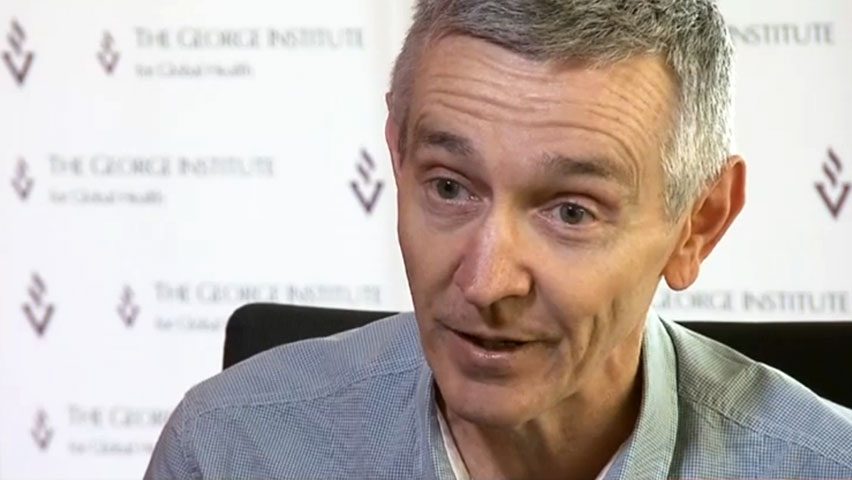
Researchers receive $9.5m NHMRC grant to combat unnecessary testing and treatment
A team of Australia’s leading healthcare researchers has been awarded a $9,578,895 program grant from the NHMRC to help reduce unnecessary testing and treatment and increase the wise and appropriate use of healthcare, particularly in the areas of musculoskeletal diseases, cardiovascular disease and cancer.
The Four Chief Investigators who will lead the study, entitled ‘Using healthcare wisely: Reducing inappropriate use of tests and treatments’, are Professor Chris Maher from The George Institute for Global Health, Professor Paul Glasziou from Bond University, Professor Rachelle Buchbinder from Monash University and Cabrini Institute, and Professor Kirsten McCaffery from the University of Sydney.
Chief Investigator Professor Chris Maher of The George Institute said he was looking forward to working with the other investigators and stakeholders to improve the health of Australians.
“My interest is in improving healthcare for common musculoskeletal conditions such as low back pain. Back pain affects millions of Australians and it is the leading health reason forcing older Australians to retire prematurely,” Professor Maher said.
“In Australia we spend an extraordinary amount on healthcare for low back pain, $5 billion each year, so it is important that we use this money wisely,” he said.
Professor Glasziou said the research program was a natural evolution of work the team had done previously in screening and diagnosis.
“The capabilities of technology have outgrown our abilities to interpret its results, which creates a problem both for the individual patient, and for the healthcare system,” he said.
“Many ‘lesions’ that technologies like MRIs are now identifying would never cause a problem for patients, but our over-testing leads to their discovery, in turn leading to their over-treatment.
“As renowned public health researcher, surgeon and author Atul Gawande has stated: ‘unnecessary care often crowds out necessary care’, so more appropriate care is in everyone’s best interest.
“The focus in this new research program will be on using healthcare wisely.
“After identifying the key problems and their causes, the team will test potential solutions in musculoskeletal diseases, cardiovascular disease and cancer.”
Chief Investigator Professor Rachelle Buchbinder of Monash University and Cabrini Institute is thrilled to be able to contribute to this important and timely program of research.
“A systematic approach to investigating the problem of over-testing, over-diagnosis, and over-treatment is needed. We know that one-off strategies aimed at changing clinician behaviour are ineffective and an all-of-systems approach involving clinicians, policy makers and consumers is needed to identify and test sustainable, multifaceted solutions.”
As a rheumatologist Professor Buchbinder’s major interest has been in improving outcomes for people with chronic musculoskeletal conditions such as osteoarthritis and low back pain.
“However a strength of our planned program of research is that it will cross professional boundaries and mean that we can learn from successes in other disciplines,” she said.
Chief Investigator Professor Kirsten McCaffery of the University of Sydney said the team was delighted to be supported by NHMRC in this important area of research.
“Inappropriate use of health care is a growing problem in Australia and internationally causing harm to patients, wasting resources and threatening the sustainability of health services,” Professor McCaffery said.
“As a health psychologist working principally in the areas of cancer and cardiovascular disease - and soon to include musculoskeletal disorders such as low back pain - my interest is how to communicate the problem of inappropriate tests and treatments to patients, the community and clinicians and to develop solutions to the problem which change the way people think, feel and behave towards this problem,” she said.
“At the moment both public and health professionals understanding of the problem is very limited and this needs to change.”
The NHMRC grant will fund a series of national research projects across all states, led by the four Chief Investigators, which will be staggered over a five year period from January 2017.
The team will partner with relevant organisations engaged in diagnostic and screening policy making to translate and disseminate its findings.
The prestigious Program Grants are awarded annually by the NHMRC are not based on the cost of the proposed research or budget request, but rather a grant amount is awarded based on the cumulative track record of research achievement of each Chief Investigator involved.

